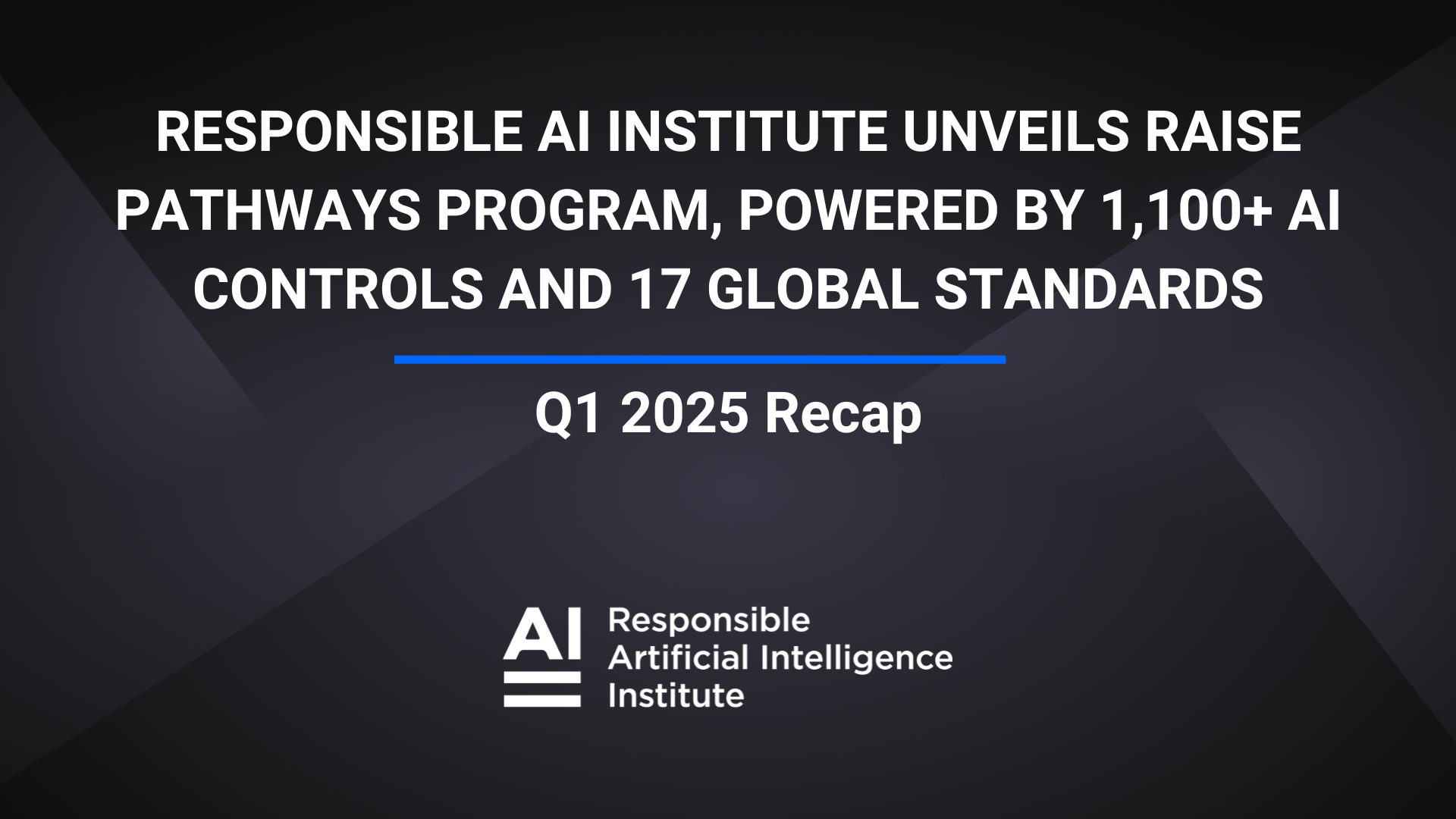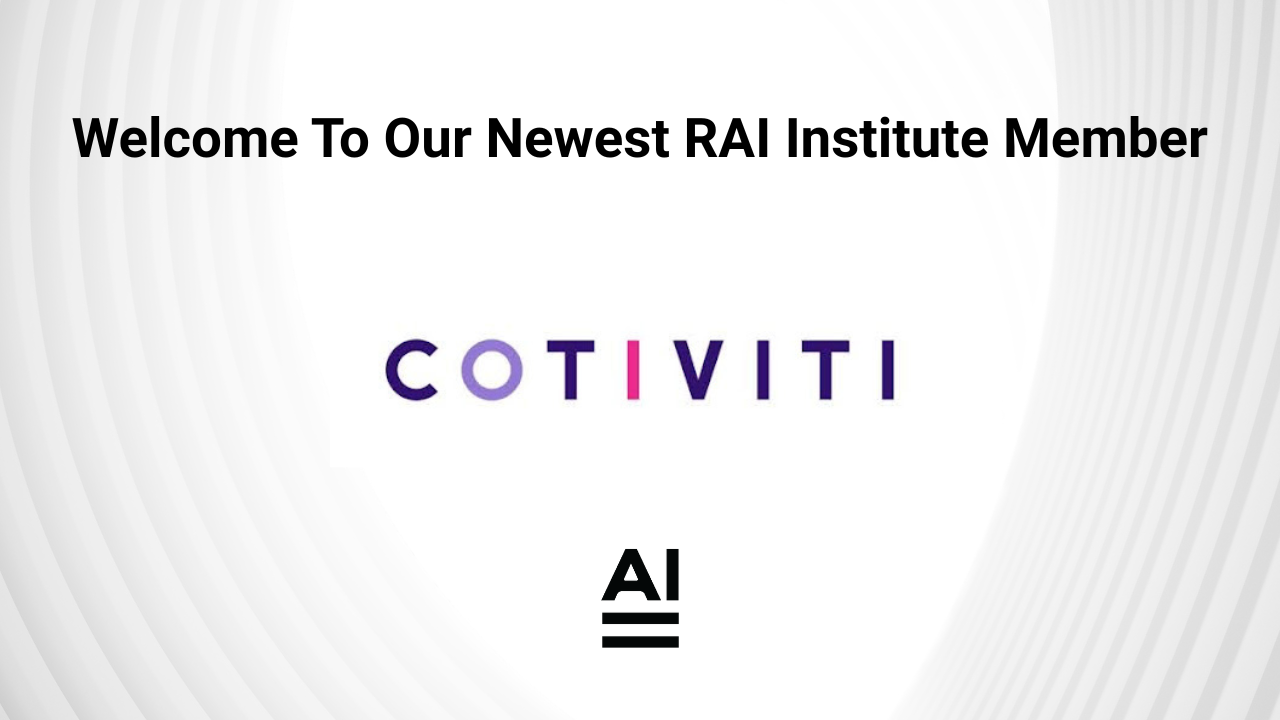Responsible AI Institute February 19, 2025 Webinar Recap
AI is reshaping industries at an unprecedented pace, and its integration into corporate governance presents both challenges and opportunities. Legal teams are emerging as pivotal players in responsible AI implementation, ensuring ethical compliance and fostering trust. To explore this evolving role, the Responsible AI Institute hosted a panel discussion featuring legal and policy experts, offering insights for organizations navigating the complex AI landscape.
The discussion, moderated by Hadassah Drukarch, Director of Policy and Delivery at Responsible AI Institute, brought together legal and AI governance leaders:
- Aleksandra Wawrzyszczuk – Program Director at LawTech UK, provided insights into legal innovation and AI governance.
- Betsy Greytok – VP and Associate General Counsel of Foundation Models at IBM, shared her expertise on AI ethics and corporate compliance.
- Stephanie Goutos – Head of Employment Law Practice Innovation at Gundersen Detmer, discussed AI’s impact on legal workflows and regulatory adaptation.
The Expanding Role of Legal in AI Governance
The panel opened with a discussion on how legal teams are evolving beyond their traditional roles. No longer just compliance gatekeepers, they are now strategic partners working alongside AI developers, product teams, and regulators to ensure responsible AI adoption.
Greytok described how IBM’s legal team plays a dual role: advising on internal AI policies while ensuring external regulatory compliance. Meanwhile, Goutos emphasized the growing importance of AI-powered legal tools, such as ChatGD, which helps legal professionals manage complex documentation efficiently.
A key theme of the discussion was the necessity of collaboration across different departments. Legal professionals act as the bridge between technical teams, executives, and regulatory bodies, ensuring AI systems align with corporate values and compliance standards.
Wawrzyszczuk highlighted the importance of early legal involvement in AI projects to mitigate risks and prevent costly regulatory missteps. She stressed that fostering value alignment across teams is essential to successfully integrating AI within an organization.
Navigating AI Regulations: A Moving Target
With AI regulations rapidly evolving worldwide, legal teams face the challenge of staying ahead of complex legal frameworks. Goutos noted that in 2024 alone, over 400 AI-related bills were introduced across 41 U.S. states, reflecting a fragmented regulatory landscape.
Greytok shared IBM’s proactive approach to AI compliance which involves establishing ethical AI guidelines that surpass existing regulations, engaging policymakers to shape forward-thinking AI regulations, and, lastly, iImplementing AI governance frameworks to streamline compliance.
How AI is Transforming Legal Workflows
AI is revolutionizing legal operations by automating time-intensive tasks and enabling attorneys to focus on strategic decision-making. The panelists shared several AI use cases in legal practice.
AI is transforming legal workflows by expediting contract analysis and drafting, enabling faster document review and improved compliance checks. It also aids in regulatory tracking, helping legal teams monitor and adapt to evolving legal requirements. Additionally, AI-powered systems enhance risk mitigation by assessing litigation risks and ensuring alignment with corporate policies.
While AI enhances efficiency, Wawrzyszczuk cautioned that legal judgment remains irreplaceable. Human oversight is critical to addressing nuanced ethical and regulatory considerations in AI implementation.
Building an AI-Ready Legal Team
The discussion concluded with practical guidance for legal teams looking to integrate AI effectively. They emphasized the importance of early AI involvement by embedding legal expertise into AI projects from the outset. It’s also critical to engage in continuous learning by keeping up with AI advancements through training and professional development. Finally, cross-functional collaboration is key. Working closely with technologists and business leaders is critical when navigating AI complexities.
Legal teams are no longer just regulatory enforcers; they are key architects of responsible AI. By proactively shaping AI policies, fostering collaboration, and leveraging AI for efficiency, legal professionals are helping organizations build trustworthy, compliant AI systems.
As AI continues to advance, legal teams that embrace innovation and actively engage in AI governance will be best positioned to lead their organizations through the next era of AI-driven transformation.
About the Responsible AI Institute
Since 2016, Responsible AI Institute (RAI Institute) has been at the forefront of advancing responsible AI adoption across industries. As a non-profit organization, RAI Institute partners with policymakers, industry leaders, and technology providers to develop responsible AI benchmarks, governance frameworks, and best practices. RAI Institute equips organizations with expert-led training, real-time assessments, and implementation toolkits to strengthen AI governance, enhance transparency, and drive innovation at scale.
Members include leading companies such as Boston Consulting Group, Genpact, KPMG, Kennedys, Ally, ATB Financial and many others dedicated to bringing responsible AI to all industry sectors.
Media Contact
For all media inquiries please refer to Head of Strategy and Marketing, Nicole McCaffrey.
nicole@responsible.ai
+1 440-785-3588
Connect with RAI Institute (use linked icons)




